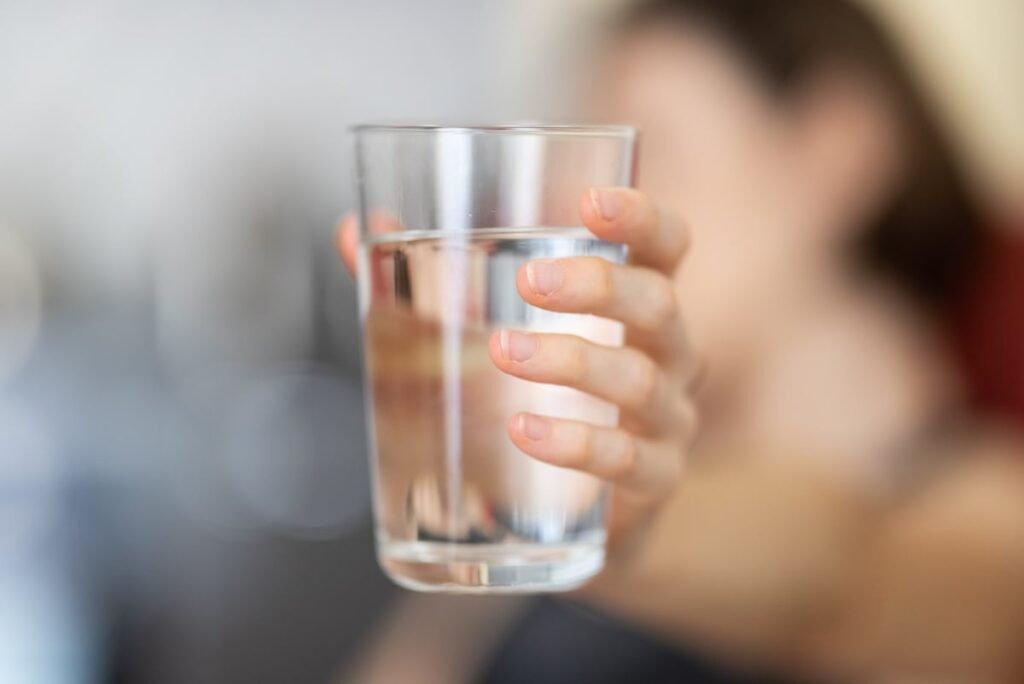When you are pregnant, how much water should you consume?
By Dr. Nutan Pakhare
It is essential that you drink enough water while pregnant to maintain your baby’s health. It keeps their body functioning properly and makes sure they get the nutrients they need to grow. In pregnancy, there is an increase in amniotic fluid and blood volume, which increases the need for water. Generally, 1.5 litres (about 6 glasses) of water should be consumed each day. If you are pregnant, you will need to drink around 2 litres (8 glasses) of water per day.
Your body’s metabolism is helped by the water, which keeps you at a healthy weight and helps you keep up with pregnancy’s demands. In addition, it maintains the integrity of your kidneys, which keep your blood clean by keeping harmful substances out of it.
It is likely that you will feel thirstier than usual, so drink plenty! If you don’t feel like drinking much, don’t worry too much; cutting back a bit is not a problem. Besides drinking water, there are other ways to stay hydrated!
The amount of water you drink may seem insufficient. However, don’t panic: You don’t have to drink until your bladder hurts. Here’s what you need to know about how much water you should drink during pregnancy.

How Much Water to Drink While you are Pregnant?
– Trimester-wise Elaboration
- First trimester
In the first trimester, your body adapts to the changes it is experiencing. Especially if you are suffering from morning sickness, you will need more water. It is natural for the body to take time to adapt to new physiological functions when new hormones enter the blood circulation. The feeling of nausea and vomiting may come and go from time to time. During vomiting, both water and electrolytes are lost, which can lead to dehydration.
Therefore, you should drink more fluids than usual. Taking fluids is easy if you take delicious and palatable drinks such as panchamrit, milk or jaggery water or any desired fruits. You may feel more energetic and less tired by drinking these drinks. But it is important to keep your doctors informed about your condition, as dehydration may result in hyperemesis gravidarum, a condition that requires hospitalization and intravenous fluid intake.
2. The second trimester
The second trimester is better than the first because your body has almost adapted to those biological changes. As a foetus floats in amniotic fluid, it receives nutrients from the umbilical cord and placenta. Thus body’s water requirements increase as the foetus develops. As the blood volume increases, so does the need for water. If you drink water throughout the day, you will be able to reach the goal of 10 glasses per day. As a result of increased blood volume and fluid, pregnant women may experience weight gain and oedema feet. In case of abnormal weight gain or gestational diabetes, hypertension, or gestational diabetes, you should visit your doctor for monitoring. You should also increase your regular activities to allow the fluids to circulate.
3. The third trimester
During the last trimester, there is a rotation of child and labour anxiety. You should therefore monitor your fluid intake to avoid dehydration and its negative effects during childbirth. Dehydration may cause Braxton Hicks contractions that may be misinterpreted as labour contractions during the last trimester. It may also lead to cord strangulation in the baby or cause labour obstacles when dehydrated. So it is important to keep a water bottle with you so you can drink water whenever you feel thirsty.
Signs of Dehydration
- When you are not hydrated well, you may feel extremely thirsty, hungry, or both.
- Your urine’s color is a good indicator of how hydrated your body is. A pale-yellow urine color indicates sufficient hydration. A dark urine color indicates dehydration, while a light urine color indicates hydration. It is not uncommon for pregnant women who are sufficiently hydrated to use the bathroom quite frequently.
- It is common to feel tired a lot during pregnancy, especially in the first trimester. Dehydration can also cause confusion, dizziness, and headaches.
- Pregnant women often experience discomfort as a result of dry skin. You can avoid itchiness and dry skin by staying hydrated.
What to drink during while pregnant?
Water is the best drink around, but what if you’re all watered down? Among the other liquids that qualify are:
- Drinking milk
- Juices (Seasonal and fresh- without preservatives or sugar)
- It is packed with minerals and vitamins and is very beneficial to the baby.
- A slice of lemon, cucumber, mint, or berries can be added to the water to add flavour.
- Add freshness to your day with herbal teas like tulsi, cinnamon, chamomile, etc.
- It’s a good idea to drink water first thing in the morning to establish a habit.
What should you avoid drinking in pregnancy?
Pregnancy is a wonderful experience, but it also comes with its own risks. The overall health of the baby is one of these fears. The following are things you should avoid during pregnancy:
- Limit your intake of caffeinated drinks, such as tea and coffee.
- Avoid alcohol during pregnancy to ensure the baby’s proper development
- Carbonated drinks – These can cause gas issues and lack of nutrition.
- Avoid packed juices – These contain added sugars and preservatives.
The water you drink can also help you keep up with the growing needs of your baby. Your uterus grows about three times its normal size and releases more hormones during pregnancy, which means you need more fluids.
Do not ignore symptoms of severe dehydration, such as:
- Fluids cannot be swallowed
- Diarrhea that lasts longer than 24 hours or bloody bowel movements
- Having severe morning sickness
Get in touch with Dr. Nutan Pakhare if you need assistance with this issue.
